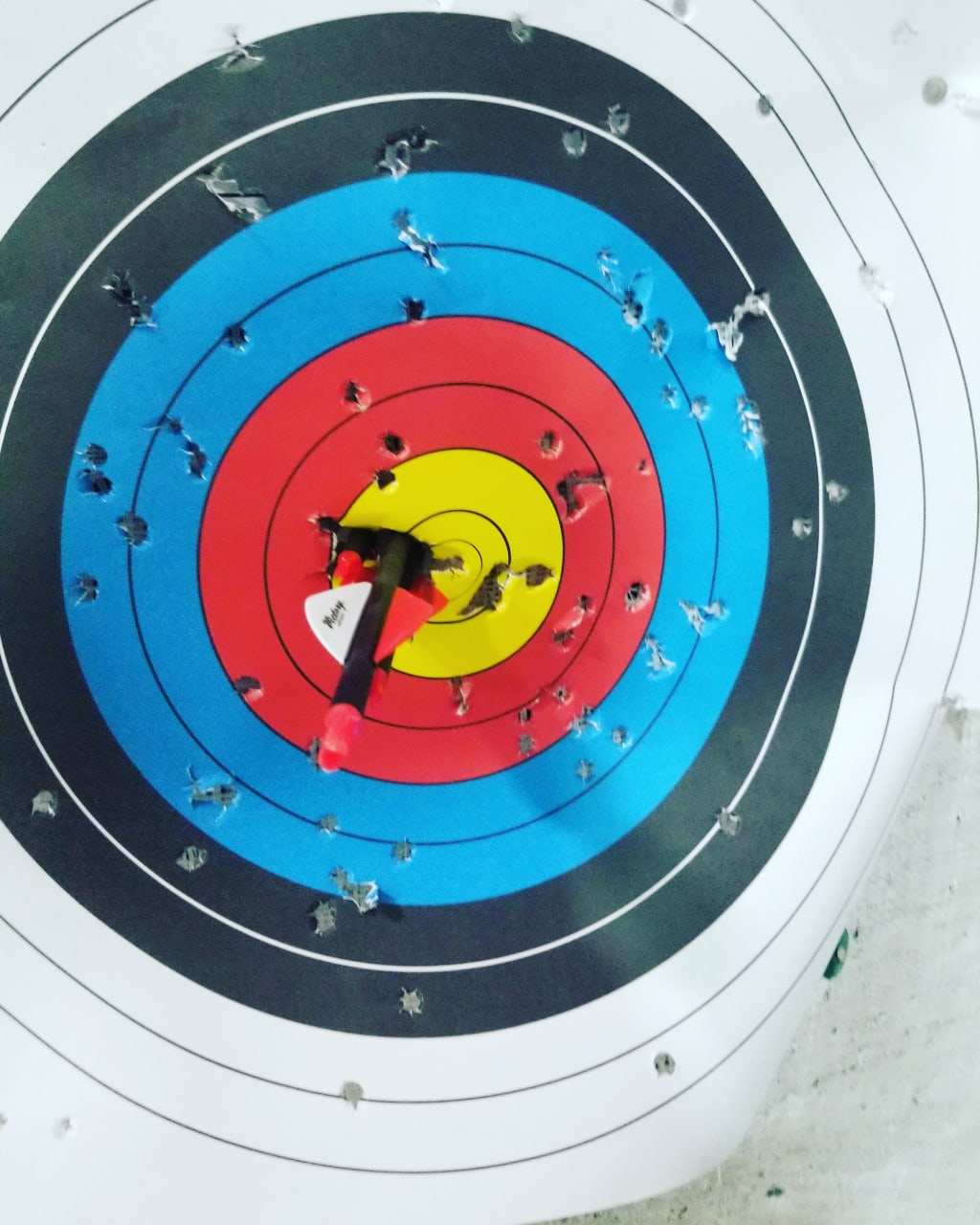Hitting the Target
Frontline staff: the unacknowledged

You might see us pushing wheelchairs, walking with clients through your local YMCA or community centre. Sometimes you don't see us at all. We are always behind the scenes and rarely thought about when it comes to mental health.
We aren't the psychologists, aspiring maybe, we aren't the speech pathologists, behavior experts or even family. Our clients do feel like family after awhile though. We see every destructive behavior, every bad day and are usually on the receiving end of a lot of anger and frustration. But... We also see these individuals at their best, after coubtless hours of therapy and support, they manage to reach a goal or correct a negative behavior. When they compete at the Special Olympics or graduate school. For other clients, being able to use a spoon on their own without any assistance is a win. We are frontline staff. Very often placed in high stress environments for extended hours any day or time of the week.
Sometimes the places we work are support and give us a new appreciation for our work. Other times they hinder our ability to be our best for the clients we support. Long hours, low pay, high stress and a lack of financial support are parts of the job. Depending on the year governments will cut spending which means frontline staff now need to do more for less.
One example I have witnessed is providing things such as toys or clothes for clients. Due to budget cuts and families lacking involvement, staff have paid out of pocket for their clients to feel joy, affection and the ability to continuing to develop. This always amazed me, we as individuals barely scrape by, yet, when it comes to those we serve we are willing to sacrifice our earnings to give back.
It doesn't matter if we have been punched, bitten, kicked or choked out of anger. The safety of the client always comes first. I've been spit at, urinated on, hit and had glass thrown at me. I've seen clients so frustrated they hurt themselves. Through all of that we do it again the next day. Whether it was 12 hours or 14 hours of work. A night I to early morning shift we are the ones helping that sibling, cousin, uncle or aunt. We are the ones implementing the plans the best we can with the resources available.
We are frontline staff.
Mental health support workers usually are lost in the sound and the scenes. Very much forgotten about expect by the families we work with. For them, we are a life line and a way for their son or daughter to reach their potential regardless of the disability at hand. Goals and expectations are realistic, some may never live in their own but if they can navigate their community, use a phone and do their basic living skills, that, is a huge success.
I write this for a few reasons but the biggest one is a reminder that those we care for mean the world to us. But, who cares for us? Their are some excellent companies out there but they can only provide so much support. Many partners, family members and friends have a tough time understanding how we do what we do. We do what we do because of those moments where something finally clicks, when they laugh, smile and just get to be a person.
I write because of the last provincial and federal election nobody could give a reasonable response on how they planned to help the disabilities community or the staff who support them.
Mental health is encompassing and takes a team. Without us, families lose a valuable resource. Without support from government and private donors those services become lost leaving a large group of willing and capable people without a place to go.
I ask that you think about these individuals, we acknowledge nurses, physicians and everyone else tied in the medical community but rarely do we hear about a frontline staff member unless it is for a negative reason.
The burnout rate amongst caregivers in Canada is around 30% according to a survey by the Canadian Medical Association as of 2017, with turn over rates are just as high. The state of medical care as a whole needs a change. A move to a lighter load allowing everyone to perform at their best and not feel as if the job is exhausting. How do we change this? What is the next step? I for one have limited ideas on where it should go from here, but, it is apparent that a change is needed to sustain the medical field and mental health as a whole.






Comments
There are no comments for this story
Be the first to respond and start the conversation.